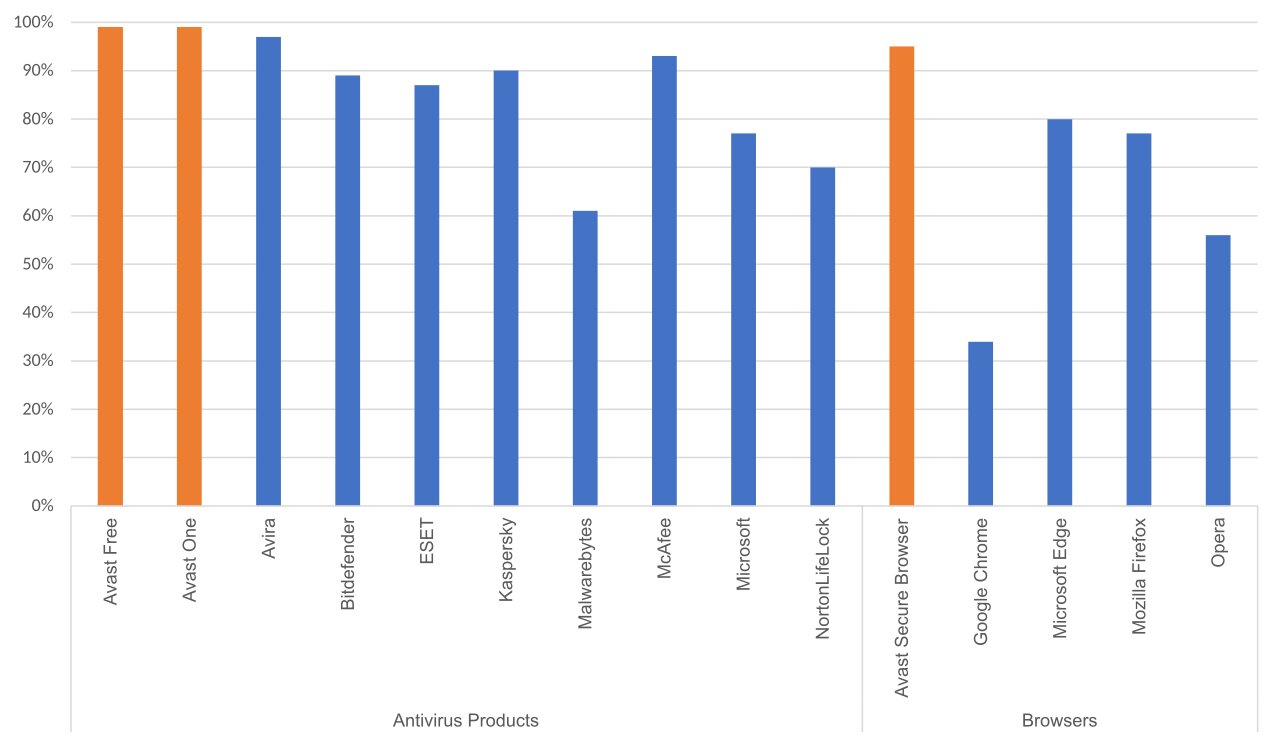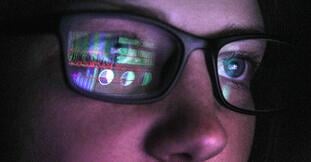Prague, Czech Republic, February 14, 2022 – Avast One Essential, the award-winning online protection service from digital security and privacy leader Avast, and Avast Free Antivirus, have achieved the top spot in a phishing detection comparison test between leading free and paid cyber safety software, including products from Kaspersky, McAfee, ESET, Bitdefender and Microsoft Defender. Both products recorded a detection rate of 99%, published in a report* by independent antivirus (AV) testing organization AV-Comparatives, which also evaluated the effectiveness of phishing page detection among some of the world’s leading browsers. Avast Secure Browser, a privacy-first browser with anti-phishing technology, also ranked first with a 95% block rate, ahead of Microsoft Edge (80%), Firefox (77%), Opera (56%) and Google Chrome (34%).
AV-Comparatives’ study, which ran from 13 January to 28 January 2022, tested all browser and antivirus products in parallel, exposing each to 250 valid and independently-selected phishing URLs, and 250 clean URLs for false alarm detection. The phishing protection provided by the AV products was tested on Windows 10 using Google Chrome 97.0 with Google Safebrowsing disabled. The browser extensions of the AVs were installed and enabled, and the competing browsers were tested without an antivirus program running. At the time of testing, all products were updated to their latest software versions.
 Source: AV-Comparatives Anti-Phishing Protection Report, 2022
Source: AV-Comparatives Anti-Phishing Protection Report, 2022
“For many years, Avast’s threat detection engine has been a standout performer achieving excellent results in the Malware Protection, Advanced Threat Protection and Real-World Protection Tests,” said Andreas Clementi, Founder and CEO of AV-Comparatives. “Recently, Avast has excelled in the anti-phishing category, which is bad news for opportunistic cybercriminals who often depend on the high success rates of phishing attacks as a means of generating greater return on investment.”
In 2021, our threat detection engine has identified and blocked nearly four million unique phishing URLs each month on average,” said Siggi Stefnisson, Head of Threat Labs, at Avast. “Phishing is one of the most common threats for both businesses and consumers, often because it’s easier to exploit the human condition through urgency, fear or pressure than it is to hack a system. Phishing attacks, particularly those which are targeted and personalized, and phishing URLs have become so widespread, hard to identify as malicious and successful in achieving their goals of theft, fraud and corporate espionage, that it’s of paramount importance we maintain an industry-leading detection rate to apply to our products and services so our customers remain safe and secure online.”
*This report was commissioned by Avast, however, AV-Comparatives’ anti-phishing test of all products was carried out impartially and under identical conditions. The phishing sites were selected independently by AV-Comparatives without instruction, influence, dispute or review from Avast or any of the tested parties.
A complete breakdown of the antivirus and browsers products tested are listed below:
Antivirus Products:
Avast Free Antivirus 21.11, Avast One Essential 21.11, Avira Free Antivirus 15.0, Bitdefender Internet Security 26.0, ESET Internet Security 21.3, Malwarebytes Premium 4.5, McAfee Total Protection 16.0, Microsoft Defender 4.18 (with Defender browser plugin for Chrome), NortonLifeLock Norton 360 22.21.
Browsers:
Avast Secure Browser 97.0, Google Chrome 97.0 (with Safebrowsing), Microsoft Edge 97.0, Mozilla Firefox 96.0, Opera 82.0.









